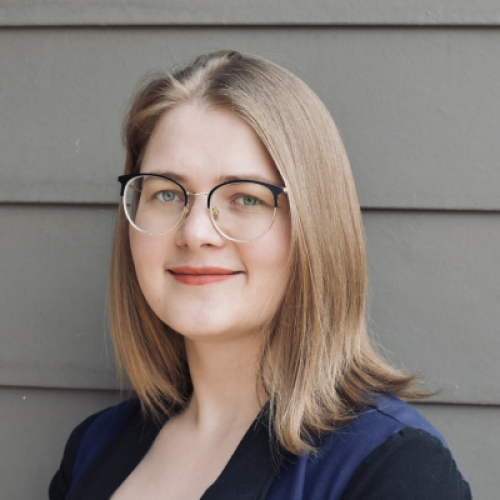Ekaterina Landgren is a doctoral candidate in applied mathematics from Moscow, Russia. After majoring in applied mathematics and philosophy as an undergraduate at Brown University, she chose to pursue further study at Cornell due to the program’s community feel and encouragement of interdisciplinary research.
What is your area of research and why is it important?
My research is in the intersection of applied math and atmospheric sciences. I build and work with climate models of varying complexity. I am interested in explaining and exploring the underlying mechanisms of atmosphere dynamics from earth’s El Niño to distant exoplanets — planets outside of our solar system.
What are the larger implications of this research?
The models I work with can help interpret data from space telescopes by illuminating the underlying mechanisms that shape planetary behavior. My work will help constrain observations made by future ground- and space-based facilities so that scientists can confidently hypothesize the natures of the planets whose transits and chemical spectra they observe.
What does it mean to you to have received the 2021 Amelia Earhart Fellowship?
I am really honored to have received this fellowship. As an interdisciplinary scholar, it is easy to feel double the imposter syndrome: to feel that I am not quite a mathematician, not quite a planetary scientist. It means a lot to have my work validated in such a way. It also makes me feel profound gratitude to my mentors here and at JPL.
What will this fellowship allow you to do that you might not have been otherwise?
This fellowship will provide me with additional resources to explore this project as I prepare to publish my model as open-source software.
What are your hobbies or interests outside of your research or scholarship?
I enjoy learning languages. At various points I have studied seven languages, focusing on Korean in recent years. I love to read (especially sci-fi, fantasy, speculative fiction). I also like hiking, skiing, weightlifting, sketching with pen and watercolors, and hanging out with my cat.
Why did you choose Cornell to pursue your degree?
During my time at Brown, I developed a strong interest in dynamical systems. My advisor suggested Cornell as a great place to study dynamical systems in a supportive environment. When I visited Cornell, I saw a real community within my program. Additionally, I was drawn to the fact that the structure of my Ph.D. program encourages interdisciplinary research.
Read the story on the Graduate School website.




